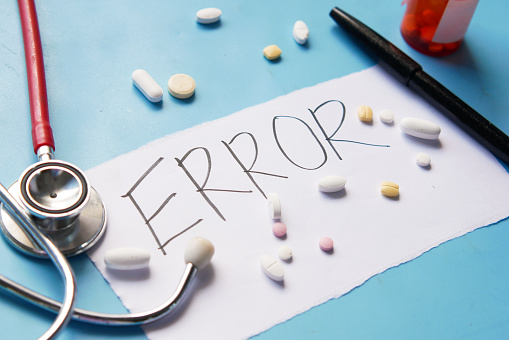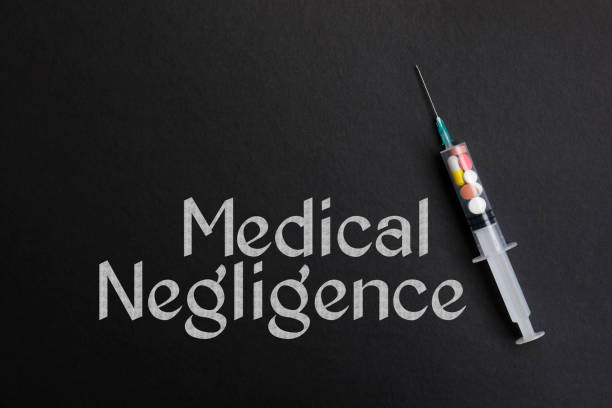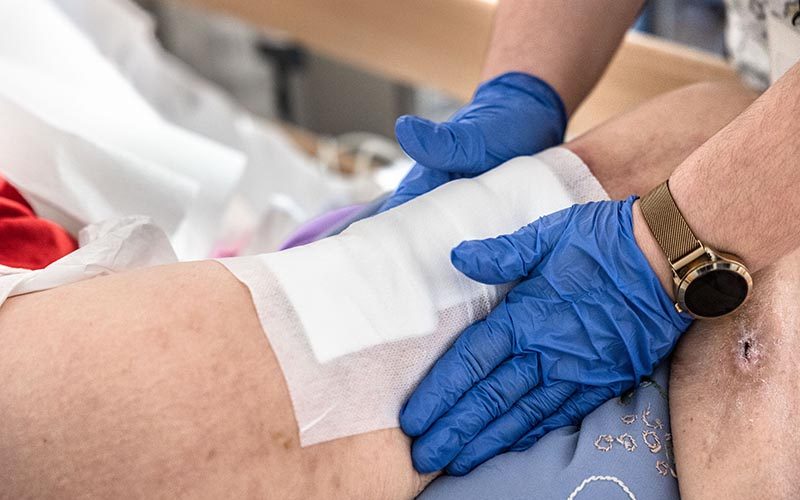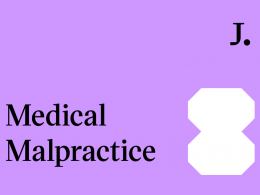Medication errors are defined as follows by the NCCMERP, the National Coordinating Council for Medication Error and Prevention: “… any preventable incident that may cause or lead to inappropriate pharmaceutical usage or patient damage, while the medication is in the hands of the health care provider, patient, and or consumer.”
Medication error means the preventable misuse of medication. The patient can order, record, prescribe, administer or monitor the drugs during the prescription. The errors in the report result from what psychologist James Reason calls unsafe acts—actions that violate rules or procedures. Medical errors have little or no impact. Some medications may alter an individual’s treatment plan, but the change has no adverse effect on others. Other medication mistakes may cause damage but are not harmful at all.
Compounding; dispensing; distribution; administration; education; monitoring; and use” are some medical errors in nursing that may be linked to professional practice and health care products, methods, and systems.

A Guide to Preventing Medication Errors
Patients in the early stages of the disease require multiple procedures. For example, a patient was intubated, so her doctor decided to crush these and place them in her nasogastric tube. She hasn’t noticed that she had to send the already ill medication to ward off an alarm in her medication management record. She crushes a calcium channel blocker that extends its release into the NG tube. An hour later, his heart rate slows, and his death happens. A patient comes home anxious with multiple veins and a monitoring device.
Medicine error is an ordinary medical errand and is most common. Adversity occurs whenever a nurse administers medication. The numbers would increase even more if nurses intercepted 89.6% of potential errors. ADE causes severe and potentially fatal damage that has profound economic consequences. The cost of the drug addiction epidemic is estimated to be around $21bn to $2bn annually and is most notably associated with hospital visits that result from the inappropriate use of the drugs or the absence of adequate drugs
Depending on the circumstances, a person must be vigilant in preventing medication errors. Medication errors occur in some cases among patients with a severe condition or chronic illness who take certain or multiple medications. Patients treated at aggressive rates are also at risk and need additional vigilance, as do babies and women. Seniors are also at risk because the medication taken increases over age.
Histories
Medication errors have been essential in enhancing safety since the report Bates and colleagues in the 1990s defined the frequency of adverse drug reactions and the relationship between medication errors and ADE in hospitals. As detailed above, the medication usage process is complex, with several steps and potential error points related to medication errors. This course covers nursing medications.
The use of technology that helps reduce medication errors can reduce costs. It has been extensively researched by CPSO, which can reduce medication and drug errors. Nevertheless, many studies on academic medical centers using home-grown clinical information systems are questionable.
Medication Errors Happen for a Myriad of Reasons
A medical provider’s delivery of medication therapy to a patient is a complicated undertaking. Mistakes can be made at any process stage, from the prescription to the final delivery to the patient.
Errors in drug diagnosis, prescribing and dosage, poor distribution methods, drug and device-related difficulties, inappropriate administration of drugs, and inadequate patient education are among the most common causes of medication errors. Incorrect use of systems for prescribing and ordering medication results in preventable errors.
- Illegible handwritten prescriptions are a common cause of the error.
- Co-prescribed drugs, historical dose-response connections, laboratory readings, and allergy sensitivities are just a few possible sources of error.
- Prescribing errors can occur when a drug or dose is chosen incorrectly, or a regimen is excessively complicated.
- Sound-alike names might lead to mistakes when prescriptions are communicated orally.
- Prescriptions written by hand may also result in improperly dispensing medications with similar-sounding names.
- In some cases, prescriptions are never sent to a pharmacy or are never filled by the patient, which might lead to errors.
Because of the lack of proper recordkeeping and drug utilization assessment, physician sampling might lead to prescription mistakes.
Mistakes in medicine dispensing are known as “dispensing errors,” and they can occur at any pharmacy or by any health care provider. Examples of omission include a patient being given the wrong medication or a dose that isn’t proper, as well as a computer system error (e.g., failure to counsel the patient, screen for interactions, or ambiguous language on a label). Before administering the drug to the patient, there may be a possibility for errors to be discovered and addressed.
Dispensing the wrong medication, dosage strength, or dosage form is the most prevalent error. Other typical errors include miscalculating doses and failing to recognize drug interactions or contraindications.
Drug administration mistakes can be made by the doctor or the patient, depending on who is administering the medication. Communication is a significant issue in drug administration. Patient awareness of the possibility of errors is often low, and they frequently fail to participate in their care.
The most common cause of medical errors is poor communication between the patient, the doctor, and the pharmacy. This includes misunderstandings about the drug name, appearance, purpose, dosage, frequency, time of day, the best time to take the drug, how to handle a missed dose, and whether the new drug replaces or augments an existing therapy.
As a result of inadequate label reading and the fact that healthcare providers are often uninformed that patients are taking over-the-counter medications, medication errors can occur.
Errors of omission predominate among those listed above. Errors resulting from omission, such as failing to provide a prescription or administer a prescribed drug promptly, are also possible. Patients’ safety can’t be improved in any one area without addressing the more difficult-to-identify mistakes of omission through attempts to enhance the processes themselves
The No Mean Syndrome: Good Clinicians Don’t Make Errors
Often doctors make mistakes. Many of these errors have been committed by well-meaning doctors. Leape et al. analyzed more than 250 grave errors at two tertiary hospital settings but did not find anyone whose error pattern was recurring. Despite medical experts recognizing that the patient safety issue is a significant problem, many clinicians have preconceived notions that prevent the shift in safety culture. The vast majority of medication errors are not reported because of numerous factors. Often it can result from a fear that colleagues or employers will punish someone who violates law and regulations or patient or family members.
Intentional drug errors are sporadic among healthcare providers, including doctors, nurses, and pharmacists. They are taught to provide “error-free” health care, which they are expected to do. But when mistakes are revealed, there is a tendency to blame the professional(s) responsible which leads to med errors in nursing and the medical profession as a whole.
It is not uncommon for a person’s profession to apply a form of punishment that includes fines, license suspensions, or revocations of licenses. Reprimands aren’t always the worst punishment for a healthcare practitioner, but losing respect from colleagues can be considerably more damaging.
Medication errors are more about what, how, and why the system went wrong than who was involved. It is preferable to begin an investigation into medication errors by looking at how the drugs are used and delivered throughout the healthcare system rather than focusing solely on the individual healthcare professional who made a mistake.
Errors in the medical care system are unacceptable. Still, health care organizations should focus on evaluating mistakes when they occur and improving the drug distribution process so that they don’t happen again or in the future.
AMCP encourages all medical professionals to take responsibility in efforts to identify, monitor, evaluate, and prevent medication errors and believes that managed care organizations should establish a non-threatening for nurses, nonpunitive, and confidential environment that encourages health professionals to report medication errors promptly.
A continuing education program in nursing may assist in reducing medication errors. New medical equipment in our facilities should also have an emphasis on teaching. Medications are a critical component of health care as mistakes can happen in varying places within a medical system, and, in other words, the patient should be aware. These heparin overdoses were reported previously in several hospitals. This information is essential when updating medication policy, protocol, and procedures. In addition, nurses can go to pharmacy grand rounds. Currently, nursing homes are using Grand Round nursing to keep employees competent.

Detecting and Reporting Medication Mistakes
Medication errors can be reported to a variety of organizations by healthcare professionals and patients alike. This includes the Food and Drug Administration (FDA) and the Institute for Safe Medication Practices (ISMP) (FDA). Error submissions are vetted by these groups jointly.
To educate healthcare practitioners, case reports are released. To help prevent prescription errors, the FDA may collaborate with drug makers and others to alert them of concerns concerning pharmaceutical labeling and packaging, as well as nomenclature, so that they can make relevant modifications.
A medication error reporting system supported by AMCP would incentivize participants to participate while safeguarding the privacy of those who report errors and the information they contribute.
Persons who report pharmaceutical errors must be safeguarded if the system is effective. Many pharmacists consider obligatory reporting laws and regulations punitive if public disclosure is involved.
The reporting results could include lawsuits, regulatory enforcement proceedings, pharmacy license forfeiture, and loss of professional reputation with concomitant loss of business. Therefore, compliance with these procedures is likely to be less than desirable.
In the United States, a large percentage of prescriptions are paid for and controlled by health care groups known as managed care organizations. Health care practitioners and their professional associations, as well as patients, might be influenced by these groups to support the reporting and avoidance of prescription errors.
There are systems for reporting medication errors, investigating the causes of errors, determining patterns in aggregate data, and making appropriate health care delivery system adjustments errors that prevent errors from occurring in managed care companies.
Managed care has played a vital role in developing and adopting technology and systems aimed at reducing the number of pharmaceutical mistakes. A medication is improper because of therapeutic duplication, dosage, or drug interaction.
Error-Prevention Strategies
Healthcare personnel must educate their patients to prevent drug errors. To contain the mistakes, patients must be educated about their health care. Some examples of patient instructions that can assist reduce drug errors include:
- Make sure you know your meds and when to take them;
- Read the drug information page provided by your pharmacists;
- Do not give anyone else your prescription drugs;
- Verify the expiration dates on your prescriptions and throw away any expired ones;
- Learn how to store medication properly;
- Don’t let kids get their hands on your medication.
Find out about any possible drug interactions and side effects.
Health care personnel and institutions are not solely responsible for preventing medical errors, but so are patients. Patients can function as the ultimate check in the system by being informed of not just the names of their medications but the reasons for their use, the times they should be provided, and the exact dose. It’s always a good idea to keep a current list of prescriptions on hand in case of an emergency or if a patient cannot express their needs verbally.
Understanding each other’s needs will help avoid confusion or misunderstanding. Many mistakes can be avoided if patients are engaged and well-informed about their health care.
Consequences of Medication Errors
Medical errors are unavoidable and can devastate the patient, the doctor, the nurse, and the hospital. Designing care processes, so patients are protected from accidental harm is essential to ensuring a safe health care environment.
Most doctors have made mistakes, but they often don’t share this information with their patients or families. Even though human error is typical in healthcare settings, it usually goes unreported. As a result of this underreporting, very little is known about medical errors’ origins and effects. Furthermore, acknowledging a medical mistake is never an easy task, so it is not done.
Recognizing one’s blunder might be challenging, but facing the circumstance and learning from it are essential if mistakes are to be avoided in the future. The first step in preventing medical errors is identifying the events that put patients at risk, which is a crucial objective in ensuring high-quality care.
Self-reported medical errors are widespread among clinicians and are linked to future emotional discomfort. As a result of medical errors, health care practitioners at all training levels face various degrees of remorse, disappointment, dread, and a sense of inadequacy.
As a result of medical errors, health care practitioners at all training levels face various degrees of remorse, disappointment, dread, and a sense of inadequacy. Attention should be paid to the impact of medical errors on healthcare providers. Residents represent a vulnerable demographic whose upbringing impacts their adult choices. Physicians’ future practices and responses to medical errors are shaped by their time in residence.
In nursing errors, the consequences can mean dismissal from jobs, mental anguish, or possibly civil or criminal charges. The researchers reported that patients with a fatal med errant relapse reported feeling immobilized, afraid, guilty, and nervous. Many people suffer from insomnia and depression as a result.

Impact of Medication Errors on Patients, Health Providers, and Hospitals
Medication errors might result in anything from minor side effects to death. New conditions such as skin disfigurement or itching may develop in some situations due to exposure to allergens. Even though drug errors are sporadic, they can result in serious patient harm or even death. When a loved one dies, it is painful. Friends and family of the deceased may find it even more challenging to come to grips with losing a loved one when they realize that their death may have been avoided.
If a doctor or nurse accidentally administers the wrong drug to a patient or has a near-miss, they may feel guilty, ashamed, and doubt themselves. The medical system will almost certainly always contain instances of unintentional medical error. It is possible, however, that we can help build provider resilience and enhance patient care in healthy, safe, and constructive environments by concentrating on the health of both providers and patients.
Patients and their families may also pursue a personal injury case against the healthcare facility where the healthcare practitioner works and the individual healthcare provider. Hospitals could likely face significant legal fees and settlement costs due to litigation. Additionally, the expense of involuntary extended hospitalization and treatment for patients may be borne by the hospital, which may have to pay the loss of production from the employees involved in the error. In addition, dealing with mistakes, investigations, lawsuits, and settlements could take an extended period. The hospital’s management team may need to research and make policy changes to prevent future mistakes. Accumulating prescription errors could negatively impact the hospital’s reputation and re-accreditation.
Medication Errors and Their Causes
In the context of the system, the frequency of medication errors is reflective of the excellent quality of the medication ordering and administrative process (see Table 1, pages 14 and 15). ADEs are most commonly used when prescribed by a healthcare practitioner or when they come from an outside physician’s office. In addition, the pharmacist has the responsibility of administering medication errors (26% – 34%), distribution (24%), and transcription (11%). Patients can cause medication errors by not taking the prescribed medicine and sometimes taking too much medicine. What are medication errors by clinicians, pharmacists, or patients?
Several experienced medical professionals recall how critical care facilities had medication “stash,” which often created duplicate errors. Using a randomized controlled trial, the drug was found in the market to be less expensive to manufacture compared to a conventional medicine based on an automated controlled trial. A hospital may also utilize a commercially available solution to reduce the need for IV compounding drugs or injectable medications. Preprint order sets and formularies help reduce errors. It recommends standard orders with preprinted protocols for 70% of health care providers’ drugs.

Safe Medical Administration for the Patient
There have been very few studies on the effectiveness and safety of ADE medications. In a study, non-compliance was found in 20%-58% of elderly patients. Patients with non-compliance have multiple chronic problems and forget to use medication to treat the symptoms. Non-compliance by patients could lead to medical error, causing hospitalization and even severe injuries. The patient-centered treatment of medical emergencies requires the careful and efficient use of the best available scientific information, honest communication, and communication with the medical personnel involved in the case.
The last strategy to decrease the number of medical errors is to develop appropriate management systems for quality management. Every institution must promote safety and discussion about medical errors in a nonpunitive manner. Only then are efficient systems solutions conceived and implemented. Taking a drug for a patient’s safety can prevent mistakes before they reach them in the first place and prevent relapse. According to a university of medicine study, organizations with a strong safety culture encourage employees to remain aware of unusual incidents and processes.
Medication errors often result from poor communication between doctors, pharmacologists, and nursing personnel. It is necessary to eliminate communication barriers and ensure accurate drug data. How can we facilitate effective collaboration between teams using the “SBAR” method? Almost 60% of sentinel incidents reported in the JCC are attributed to poor communication. One patient had died when labetalol, hydralazine, and extended-release nifedipine were taken into the nodule and given via tube. During extended onset, a medication can easily be absorbed in its complete form.
Correct demographics are the first “5 rights” for medication administration. All patients must submit the following details for their health history and health care records to the hospital: name, age, and date. Using a barcode scan of patient armbands to determine identification is an excellent way to prevent medication errors. However, the barcode technology can impact patient safety, and nursing staff can also use potentially dangerous “workarounds.” The barcode system is also ineffective; Alternatively, the scanner battery can malfunction.
The first step in combating medication errors would be the doctor, who should be given every piece of information needed to make the most appropriate medication for all patients. Some of these recommendations have evidence-based effects and can be used to diagnose various diseases, such as diabetes. Accurate and complete information should also be required regarding the medications, infections, comorbidities, known allergies, and adversity. Additionally, comprehensive information about the best medicines for the patient is necessary.
Incorrectly identifying and controlling drugs is prone to relapse. Occasionally delivery systems are subject to inherent problems and thus increase error. In addition, a slew of IV medicine tubes continued to flow after being removed from the pump. Patients received medications by bolusing or injecting medications, often with adverse effects. During hospitalization, a patient with nitroprusside may be given a hefty drug dose as soon as the tubing is removed from the pump to transfer the patient to another bed. The problem was solved.
Medications Most Frequently Implicated in Medical Mistakes
In all hospital units except pediatrics, heparin (an anticoagulant) was the most prevalent drug implicated in medication errors, despite cardiovascular drugs being the most commonly involved drug class.
What are the three most common drug classes involved in medication errors?
Antimicrobials (34 percent), cardiovascular agents (16 percent), and gastrointestinal agents (7 percent) were identified as the three-drug classes most commonly involved in prescription errors in an extensive 9-year study of prescribing errors in a teaching hospital.
What Are the 3 Most Common Drug-Related Errors?
The three most common errors are: dispensing an incorrect medication, dosage strength, or dosage form; miscalculating a dose; and failing to identify drug interactions or contraindications. Errors caused by drug administration can be made by the health care provider or the patient.
What Is the Most Common Cause of Medical Errors?
Communication Problems Communication failures are one of the leading medical problems. These situations occur daily across medical practice and healthcare systems and can be experienced by a physician, nurse, healthcare employee, or patient. Poor communication leads to medical mistakes.
What Are Examples of Medication Errors?
Occasionally medication errors occur, which are considered to be symptomatic. One example of a mistake is taking prescription medications that contain acetaminophen.
What Is the Most Common Type of Medication Error?
The three most significant common miscommunication errors are miscalculating doses or incorrectly prescribing medications. Sometimes, a patient is mistakenly recommended medicines by a doctor if there’s any other problem in the treatment.
What Are Some Factors That Influence Medication Errors?
The main reasons for a medical malpractice claim are a lack of motivation and a lack of personal responsibility in dealing with medications.
According to a report on medication errors, workplace distractions, lack of training and education, medication packaging, and difficulty reading a drug chart were among the causes. Thirty-three percent of the 136 people who took the survey admitted to being victims of medication-related mistakes or mishaps. Higher-ranking nurses were found to have made more mistakes than their lower-ranking counterparts.
What Are the Top Five Medication Errors in the Us?
Among the recommendations to minimize drug errors are that patients and drug companies must have the right to take the proper dosage, the correct path, and the time to do so. The most common errors include:
- Unsafe overrides with automated dispensing cabinets;
- Unsafe use of IV push meds;
- Wrong route errors with tranexamic acid;
- Unsafe labeling of prefilled syringes and infusions by compounders;
- Using syringes for vinca alkaloids.
Speak to JustPoint if you or your loved ones are victims of medication errors.
What Are Some Causes of Medical Errors?
The most common causes of medication error include the inaccurate diagnosis of the drug, prescription error, and dosage error.
What Is the Most Common Type of Medical Mistake?
Medication errors are a common mistake when using the medicine. Using incorrect drugs can cause harm.
What Are Nursing Medication Errors?
The American Academy of Pediatrics defines medical errors as any preventable situation that could have caused an inappropriate use or induced patient injury while the drug was under the control of the physician/patient or the consumer.”
What Are 3 Medication Errors?
The most common dispenser error involving prescription drugs is the improper prescription, dosage strengths or dosage forms, incorrect calculations of dosage, and failure to identify drug-induced or contraindications. Errant drugs should be reported to the patient directly or directly, as the patient is liable for the error.
What Are the Consequences of Medication Errors?
Medical errors cause patients remorse for losing their trust and reputation and may lead to court proceedings, felony charges, or medical board discipline.
What Are the Consequences of Medication Administration and Errors Which May Occur?
A severe medication error can have serious detrimental effects, such as Demise. It could also lead to dangerous Hospitalisation.
Don’t waste your pain. Let Justpoint help you get the compensation you deserve.












